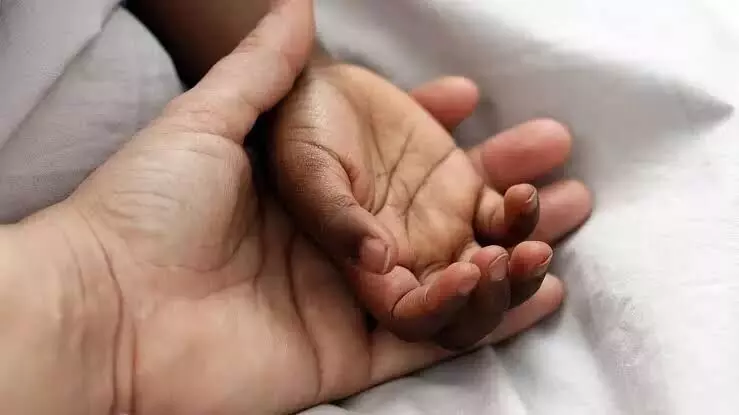CARA calls for stronger counselling during child adoption process; check dos and don’ts
Ministry of Women and Child Development has issued dos and don'ts for child adoption process
By Newsmeter Network
New Delhi: Ministry of Women and Child Development has issued guidelines for child adoption process
New Delhi: Central Adoption Resource Authority (CARA), India’s nodal body for adoption under the Ministry of Women and Child Development, has issued a new set of directions mandating stronger counselling services throughout the adoption process.
Issued on July 7, 2025, these directions aim to formalize and expand psychosocial support for all key participants in the adoption ecosystem, prospective adoptive parents (PAPs), adopted children, and biological parents.
These measures come under Section 70(1)(a) of the Juvenile Justice Act, 2015 (amended in 2021) and align with the Adoption Regulations, 2022.
Why Counselling Matters in Adoption
Adoption is not just a legal event; it’s an emotional journey for both the child and the adoptive family. CARA’s move acknowledges this and makes counselling a central part of the process.
“Counselling helps parents understand the psychological and emotional needs of an adopted child, especially if the child is older or has had a history of trauma,” says Dr. Prabati Rao, child psychologist and consultant at a Hyderabad-based adoption agency. “For children, it is often about processing identity, belonging, and trust.”
CARA’s updated guidelines underscore that counselling is not an optional add-on but a legally mandated component of every adoption case.
What the New CARA Directives Say
The new directives cover three main stages: pre-adoption, during adoption, and post-adoption, ensuring a continuum of care.
1. Pre-Adoption Counselling for Parents
SARAs (State Adoption Resource Agencies) have been instructed to provide structured counselling during the Home Study Report (HSR) stage, especially under Regulation 10(7).
“This phase is crucial,” says Dr. Neeta Patankar, gynaecologist and fertility expert. “Many couples come into adoption after fertility challenges. Counselling can help address grief, expectations, and prepare them for adoptive parenting.”
Counsellors must be qualified professionals with experience in child psychology, mental health, or social work.
2. Support for Adopted Children
Children, especially those above the age of two or those who have been institutionalized, must be given age-appropriate counselling. Regulation 30(4)(c) mandates that older children receive counselling before and during adoption to ensure they understand and accept the transition.
“Children, even toddlers, can sense unfamiliar environments and emotional disconnect,” explains Dr. Rao. “Counselling helps them adjust to new families while also addressing any past trauma.”
Post-Adoption: When Emotional Support Becomes Critical
CARA’s guidelines make post-adoption counselling mandatory in situations where:
• The child initiates a root search to find biological parents (Reg. 30(4)(e)).
• There is non-adjustment or conflict between the child and adoptive parents (Reg. 14(4), 14(6)(b)).
• There is a risk of adoption disruption or dissolution (Reg. 21(6)).
Psychosocial support is also advised in any other concerning situations, based on assessments by District Child Protection Units (DCPUs) or Specialized Adoption Agencies (SAAs).
“All adopted children have the right to identity,” says Riya Thomas, legal consultant in child welfare law. “Supporting them through root searches or difficult family dynamics is essential for their long-term mental health.”
Informed Consent from Surrendering Parents
For biological parents surrendering a child for adoption, CARA has made counselling mandatory as per Regulation 7(11) and 30(2)(c). They must be informed:
• Of the legal finality of their decision after 60 days.
• Of the child’s right to a root search later in life.
“This is critical,” says Dr. Patankar. “Mothers, particularly those giving up children due to socio-economic pressures, need emotional support. Many live with silent grief.”
Implementation Plan Across States
All SARAs have been instructed to empanel qualified counsellors at both district and state levels and ensure that:
• All counselling sessions are properly documented.
• Counselling is consistent across child care institutions.
• The services are available during every phase of adoption.
CARA has clarified that counselling is not a tick-box formality, but a child-centric intervention critical for the long-term success of adoption.
Looking Ahead: A Child-Centric Adoption Ecosystem
India saw over 3,200 in-country adoptions last year, according to CARA’s data. With many children in need of secure homes, this directive seeks to make the adoption system more empathetic and prepared.
“Emotional preparedness is as important as legal eligibility,” says Dr. Rao. “These reforms are a step toward acknowledging that and giving every child a real chance at stability.”